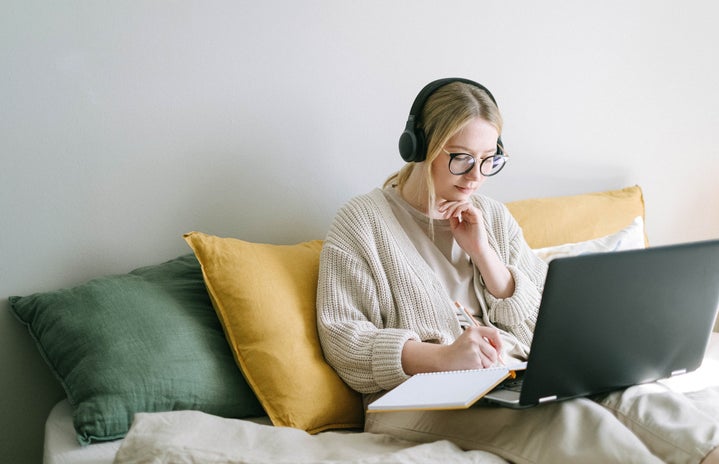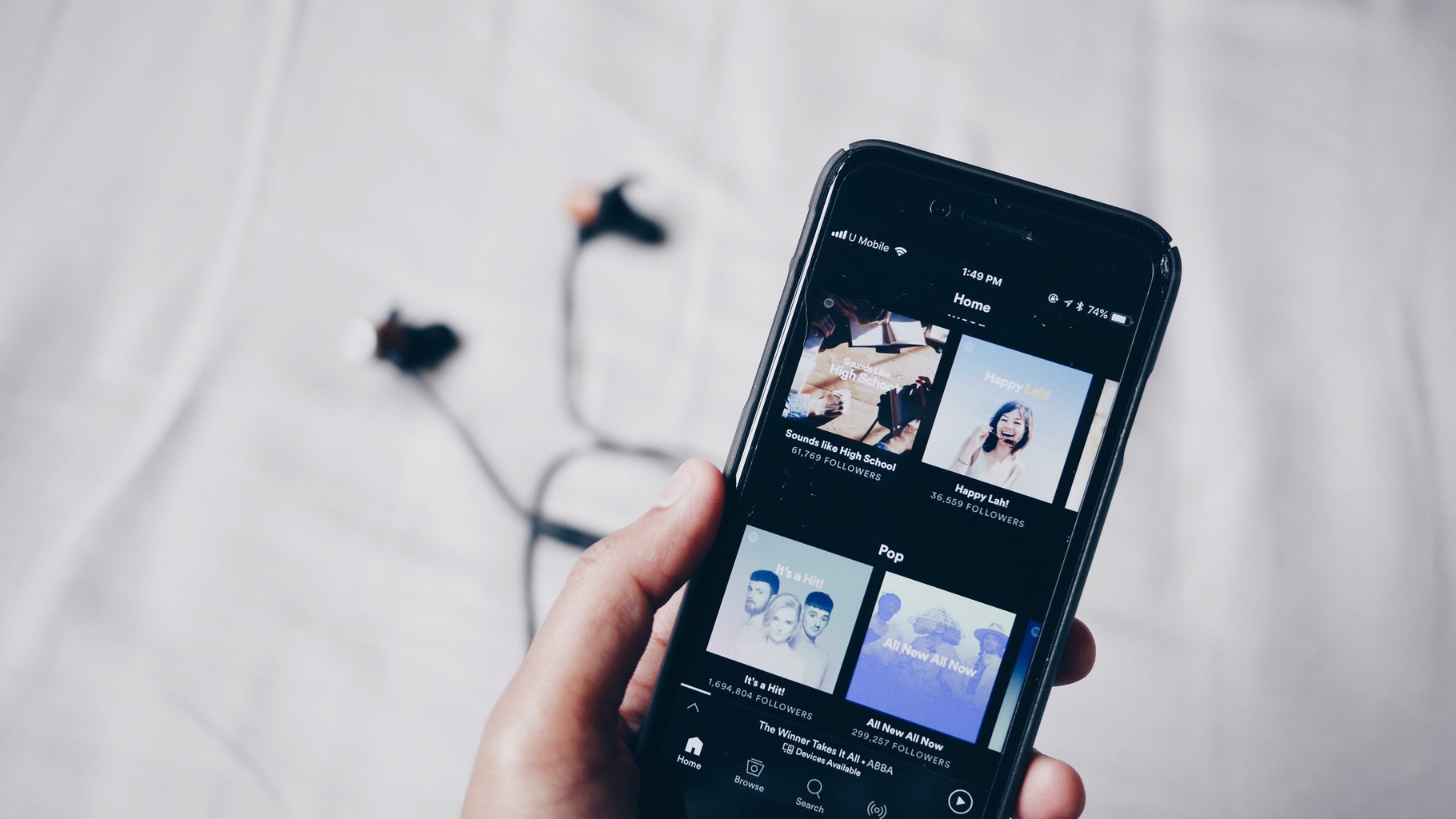I don’t stress enough how deeply music is part of my being and my identity. I’m a creative writing major and I don’t take any music lessons or classes, but my five-thousand-plus-song Spotify library is my lifeline and I’m certain I’d completely lose the will to live if I couldn’t listen to music anymore. Everyone who knows me beyond the surface-level knows this. So what happens when the thing you love most, and the thing you turn to for solace and comfort, suddenly becomes the opposite of that?
I went through an extremely tough time my spring semester freshman year, at the end of January and the beginning of February. After incredibly tense and anxious days, I’d return to my cold, dark room–made worse due to its emptiness because my roommate the previous semester had transferred–and I’d feel so unbearably lonely that I’d lie in bed and sob. In an attempt to feel better, I found music a bit outside of my genre on a Spotify playlist that promised to bring me serenity. Music had always healed me in the past, and during those difficult weeks it did the same: I’d stare up at my dorm lights, thinking I could feel my heart beating in my eyes, and listen to seven specific songs repeatedly, and they soothed me when I couldn’t soothe myself. One of them was “Looking Too Closely” by Fink, which felt fairly relevant to what I was dealing with at the time. I remember bursting into tears one particular night as I listened to it.
The music did what I needed it to do, but as time went on and those troubles subsided, I found I couldn’t relisten to any of those songs without feeling a sense of crushing anxiety, echoing what I felt that winter. I began to skip them whenever they came up on shuffle and even removed them from my music library and playlists in an effort to avoid those emotions. It hurt me to do, since the music had helped me so much–and they were really good songs!–but I refused to bring myself back to that dark place by any means. Even thinking about the songs made me tense up.
As I worked to heal myself from what I went through, I felt that my avoidance of the songs was a roadblock to my personal recovery. I’m learning in my abnormal psychology class right now that directly confronting or encountering what you fear–or avoiding avoidance–is the only way to get past it, also known as exposure therapy. So this past summer I took a deep breath and decided to try again, and the first song I wanted to listen to again without associating it with my freshman year was “Looking Too Closely”.
I made sure I was at a good mental place and a location I was comfortable in before listening to it again, and I let the music itself move me, not what I thought of when I listened to it. And I felt like how I do when I listen to music I love again, and I was really proud of myself for that.
Moving past any kind of trauma is an extremely challenging process and always features bumps and setbacks along the way; it’s never a truly linear path where you and your feelings improve at every step. In fact, if I’m honest with myself, I haven’t been able to listen to the other six songs yet without feeling the negative feelings again. But I can love “Looking Too Closely” again, and I’m really really grateful for that, and if I keep working at it I know I’ll be able to listen to the others too.



